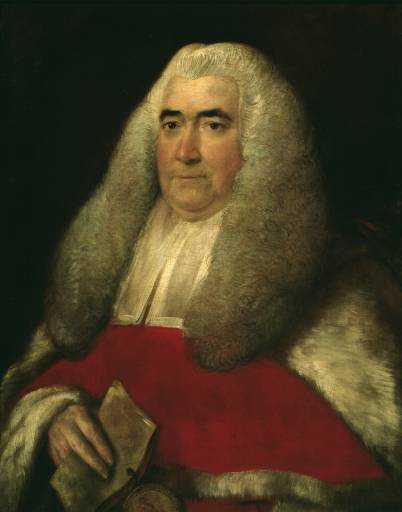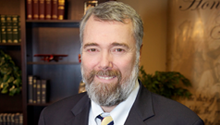‘Jesus Never Told Caesar How to Run Rome’: Jerry Falwell Jr. Says Bible Not Meant for Public Policy
 During a recent interview with The Washington Post, Jerry Falwell Jr., the president of Liberty University, which hails itself as the world’s largest Christian university, said that he doesn’t believe that the teachings of Christ were meant to be used for public policy, and confirmed that his stance is that the government should be “free of religious association.”
During a recent interview with The Washington Post, Jerry Falwell Jr., the president of Liberty University, which hails itself as the world’s largest Christian university, said that he doesn’t believe that the teachings of Christ were meant to be used for public policy, and confirmed that his stance is that the government should be “free of religious association.”
“Jesus never told Caesar how to run Rome,” Falwell stated. “He went out of His way to say that’s the earthly kingdom, I’m about the heavenly kingdom. And I’m here to teach you how to treat others, how to help others, but when it comes to serving your country, you render unto Caesar that which is Caesar’s.”
“You almost have to believe that this is a theocracy to think that way—to think that public policy should be dictated by the teachings of Jesus,” he remarked.
While his comments began in regard to Democrats citing Scripture in their arguments for open borders, he confirmed The Washington Post’s take on what his statements suggested when pressed further about his views.
“So, the government you want is one free of religious association?” the outlet asked.
“Yes,” Falwell replied. “The government should be led by somebody who is going to do what’s in the best interest of the government and its people. And I believe that’s what Jesus thought, too.”
He was later questioned as to whether it is hypocritical for evangelical leaders to support Trump, considering the moral concerns. He said that he did not think so, as all men are sinners.
“So, you don’t choose a president based on how good they are; you choose a president based on what their policies are,” Falwell stated.
Falwell again spoke of his view regarding the delineation between the earthly and the heavenly kingdoms.
“There’s two kingdoms. There’s the earthly kingdom and the heavenly kingdom. In the heavenly kingdom, the responsibility is to treat others as you’d like to be treated. In the earthly kingdom, the responsibility is to choose leaders who will do what’s best for your country,” he said.

However, David Whitney, pastor of Cornerstone Evangelical Free Church in Pasadena, Maryland, and senior instructor with the Institute on the Constitution, told Christian News Network that America’s founders didn’t view the government that way.
He pointed to the Declaration of Independence, which speaks of “the laws of nature and of nature’s God,” and noted that the phrase originated with William Blackstone, a Christian whose commentaries on English law were centered on biblical law.
Writer Kent Schmidt outlines, “Cicero and Grotius … believed that the law of nature, which is binding upon all humans just as surely as gravity affects all of nature, is nothing more than the voice of reason. In sharp contrast to this humanistic view of natural law, Blackstone believed that the law of nature is not only binding on all men, but that it is dictated by God Himself.”
“Thomas Jefferson reflected Blackstone’s view when he used the phrase ‘law of nature and of nature’s God’ in the Declaration. This phrase indicates that Jefferson understood the difference between Blackstone’s theory and that of Grotius and Cicero. The law of nature refers to the will of God observable in creation while the law of nature’s God refers to the divine law which is revealed through the Scriptures.”
Whitney explained that while the teaching of Jesus are to be received and followed personally, they also are to be the standard for family government, church government and civil government.
“God’s law relates to each and every one of those four jurisdictions,” he stated. “I cannot understand where Jerry Falwell has missed what I think is pretty plain in the Scriptures—that God’s law, given to us in Scripture, is the foundation of any legitimate law. As Blackstone said and all our founders believed—and they argued in this in the Declaration—if humans create law that’s in violation of God’s law, it is not law.”
Whitney provided a number of examples where public policy must be founded upon biblical law.
“Judges can spill all the ink they want on paper and say that two men can marry and that constitutes a marriage, [but] that does not change the law of the universe regarding marriage. God defines marriage,” he noted. “God commands thou shalt not murder. God commands thou shalt not steal, thou shalt not commit adultery. So, God’s law relates to what civil government is supposed to be enforcing.”
Whitney stated that there indeed is a separation jurisdiction-wise between self-government and civil government, but not in the manner that Falwell stated. For example, there are some sins that the government is not meant to punish, such as gossiping, as those matters are more for the church and family to address. But every realm of life—personal, family, church and civil—has a responsibility to God to carry out His will as outlined in the Scriptures.
“In advance of [Christ’s] kingdom, we are told to occupy until He comes—that is to make disciples of the Lord Jesus Christ in their individual obedience to God’s law (in self-government), in their families and how their families obey God’s law, and in our churches and how our churches obey God’s law,” he said. “[But] Jerry Falwell … seems to balk at the idea that somehow civil government should also repent of its sins.”

Whitney explained that if God’s law is not the basis for public policy, and it is “free from religious association,” then all that is left is secular humanism.
“You see, if you reject the idea that God’s law has anything to do with human civil government, then you have no standard whatsoever by which human civil government can establish justice in the earth,” he noted. “When Jesus said, ‘Render to Caesar the things that are Caesar’s,’ He didn’t say that Caesar can make up any law he wants—that Caesar could say, ‘Let’s go murder babies,’ and that’s fine with God. No, no, no.”
“Our society has said murdering babies in the womb is perfectly fine. [But] God’s law says that’s murder,” Whitney exemplified. “If you’re just going to base it on human reasoning, [who’s to say] to stop with murdering babies? Why not start killing old people because they’ve got too many diseases or sicknesses, and they’re no longer useful to society? Why not kill people in wheelchairs because, ‘Oh, they’re not going to be useful’?”
He said that leaving public policy up to man’s subjective standard leaves the rights of men vulnerable and unsecured, noting that government-granted privileges can consequently be taken away as easily as they are granted.
“Today, the government might say you can own property, and tomorrow they’re going to steal the property from you, like they do in communist countries or places like Venezuela where you don’t have any property rights whatsoever,” Whitney outlined. “So, if you reject the whole theory that our rights are given to us by God, then of course you’re going to wind up with a system of government where no one has life, liberty or property protected.”
As previously reported, Falwell has been a vocal supporter of President Trump, repeatedly asserting throughout Trump’s presidential campaign that the then-candidate bears the fruit of one being born again because of his characteristic good deeds.
“I’ve seen his generosity to strangers, to his employees, his warm relationship with his children,” he said on CNN’s “Legal View With Ashleigh Banfield” in February 2016. “I’m convinced he’s a Christian. I believe he has faith in Jesus Christ.”
Falwell made similar comments to Fox talk show host Sean Hannity.
“He may not be a theological expert and he might say two Corinthians instead of second Corinthians, but when you look at the fruits of his life and all the people he’s provided jobs, I think that’s the true test of somebody’s Christianity, not whether or not they use the right theological terms,” he contended.
Falwell asserted that those who expressed concerns about Trump’s behavior were violating the “judge not” clause in Matthew 7:1.
“Jesus said, ‘Judge not, lest ye be judged. Let’s stop trying to choose the political leaders who we believe are the most godly because, in reality, only God knows people’s hearts. You and I don’t, and we are all sinners,” he said in an interview with the Liberty University newspaper in March 2016.
John Jay, the first chief justice of the U.S. Supreme Court, once said, “Providence has given our people the choice of their rulers, and it is the duty, as well as privilege and interest, of a Christian nation to select and prefer Christians for their rulers.”
Become a Christian News Network Supporter…
 Dear Reader, has ChristianNews.net been of benefit and a blessing to you? For many years now, the Lord has seen fit to use this small news outlet as a strong influential resource in keeping Christians informed on current events from a Biblical worldview. Despite Facebook’s recent algorithm changes, which has limited our readership, and, as a result, has affected operational revenue, we continue to strive to bring you the news without compromise and to keep Christ in focus. If you have benefited from our news coverage, would you please prayerfully consider becoming a Christian News supporter by clicking here to make a one-time or monthly donation to help keep the truth widely and freely published and distributed? May Christ continue to be exalted through this work!
Dear Reader, has ChristianNews.net been of benefit and a blessing to you? For many years now, the Lord has seen fit to use this small news outlet as a strong influential resource in keeping Christians informed on current events from a Biblical worldview. Despite Facebook’s recent algorithm changes, which has limited our readership, and, as a result, has affected operational revenue, we continue to strive to bring you the news without compromise and to keep Christ in focus. If you have benefited from our news coverage, would you please prayerfully consider becoming a Christian News supporter by clicking here to make a one-time or monthly donation to help keep the truth widely and freely published and distributed? May Christ continue to be exalted through this work!





Comments are closed.